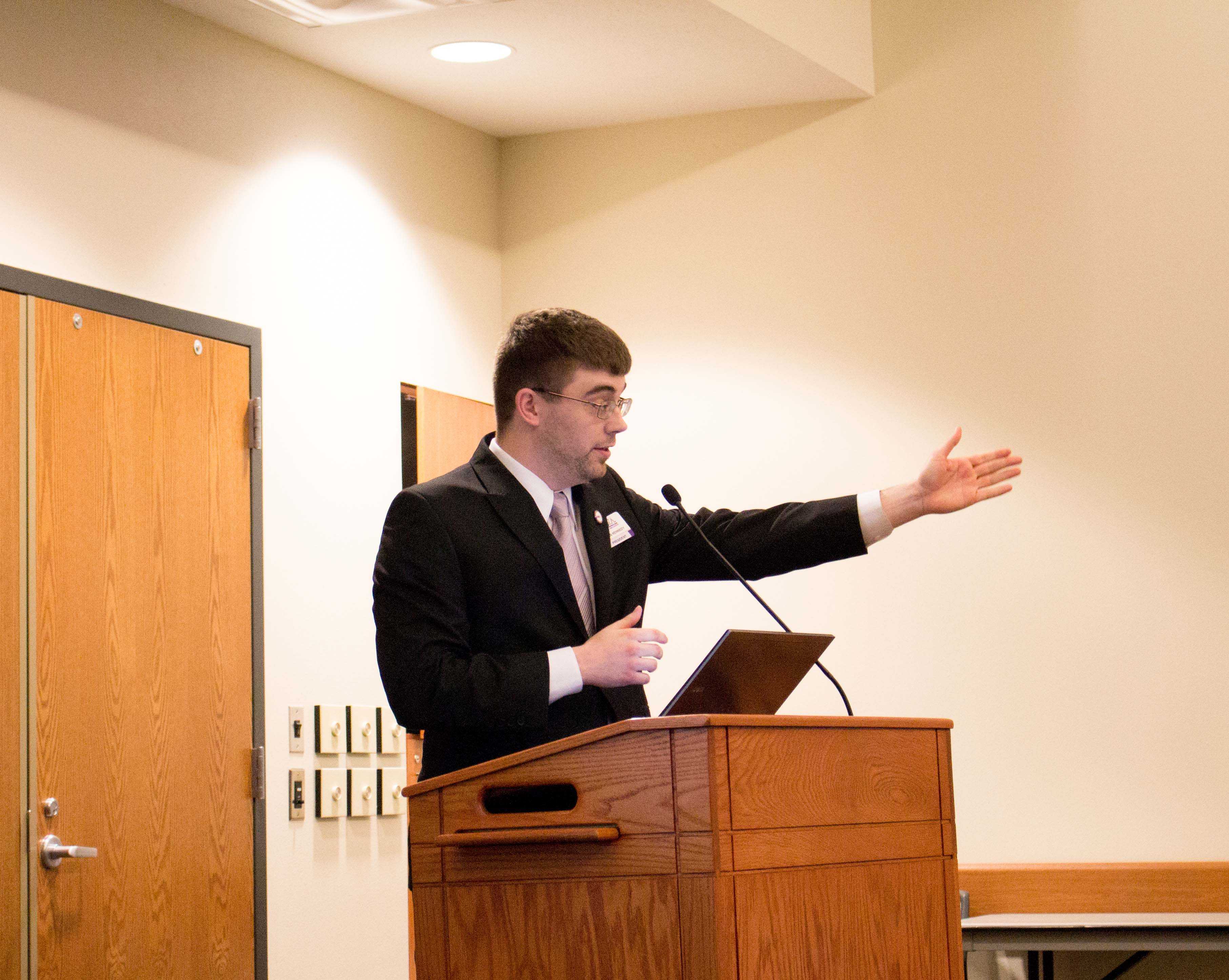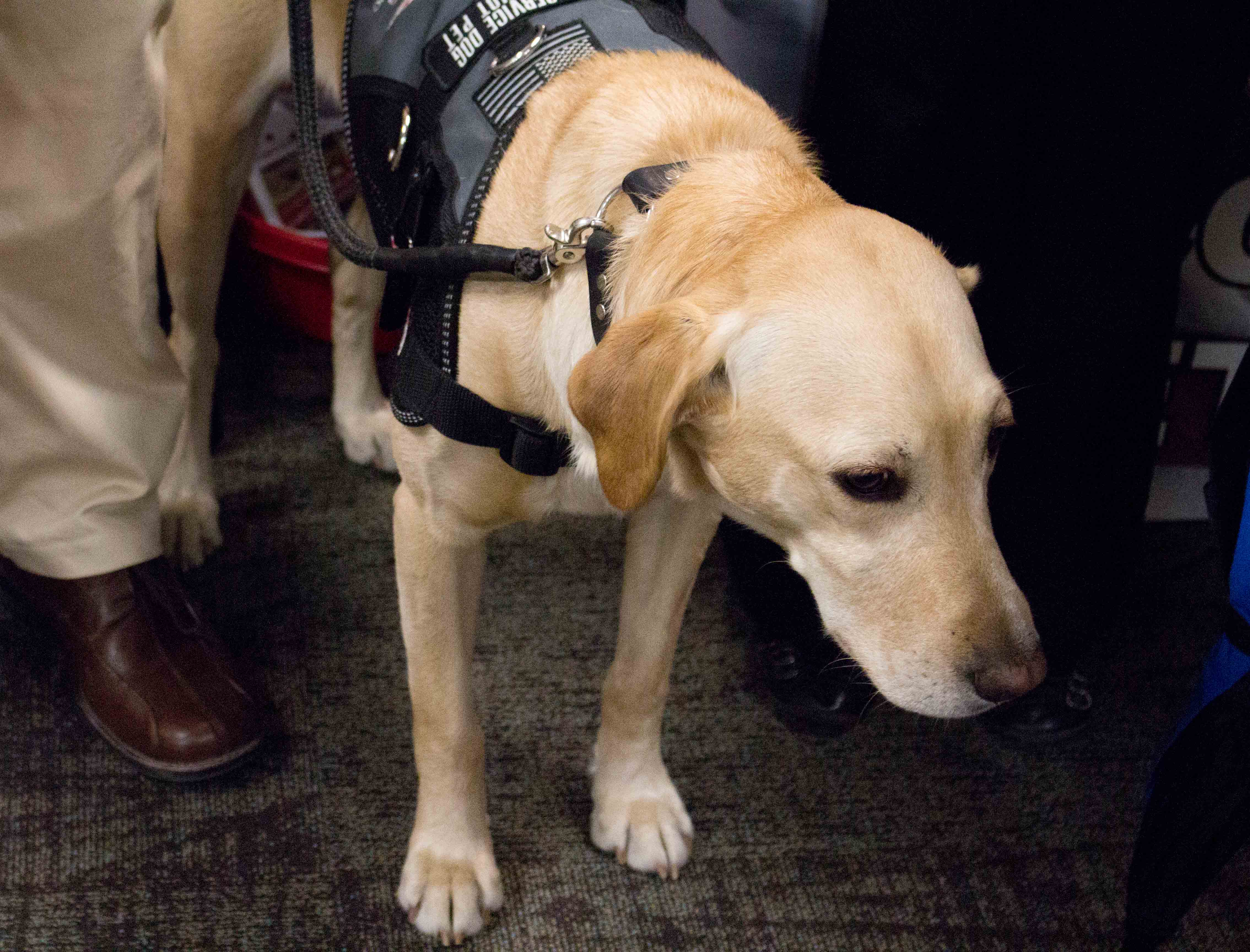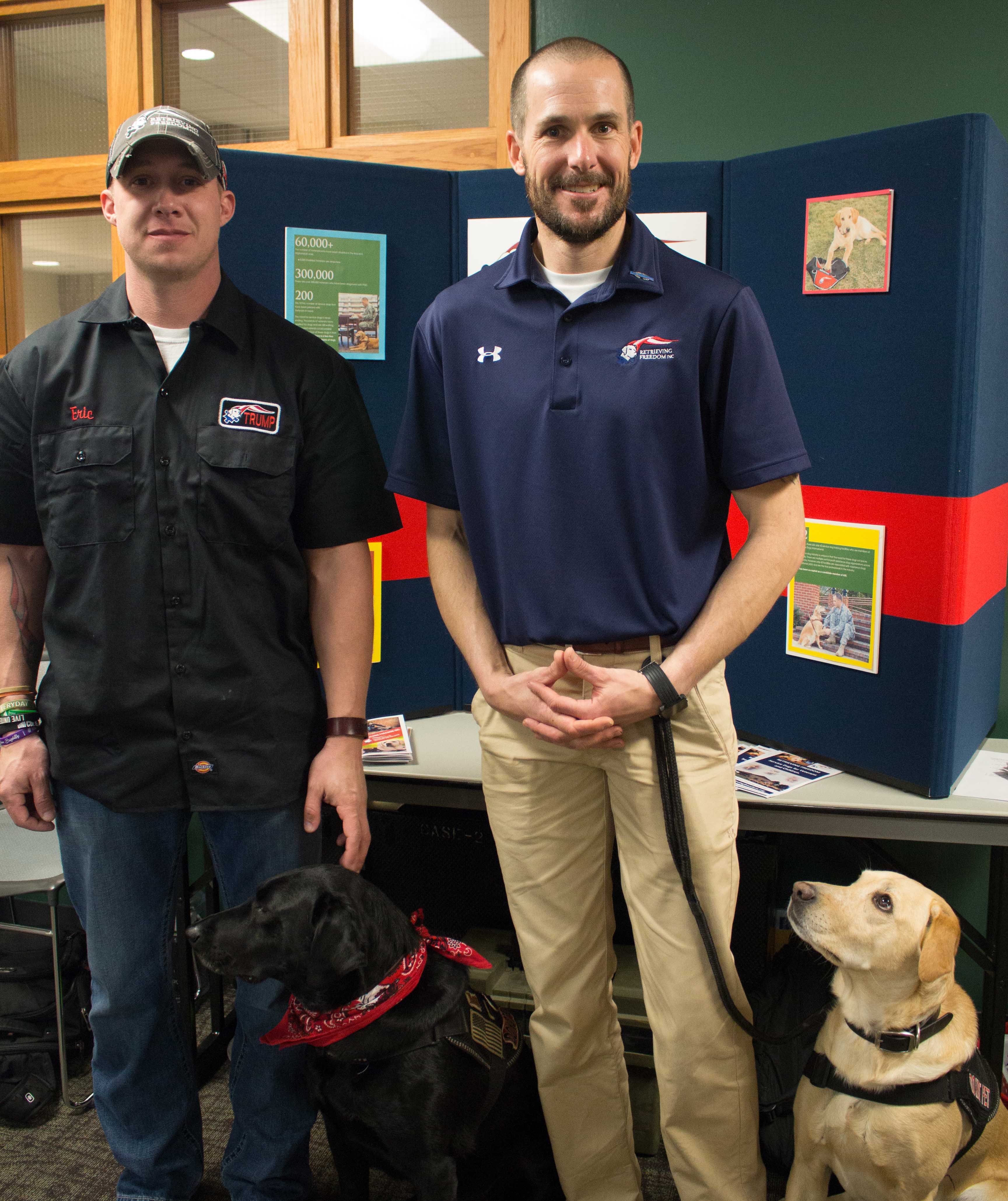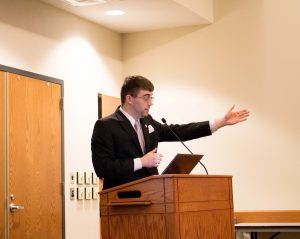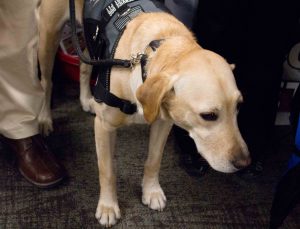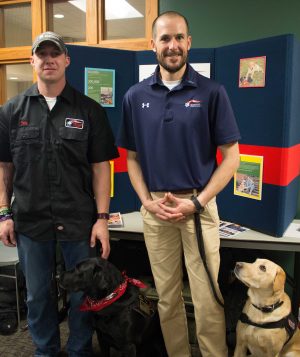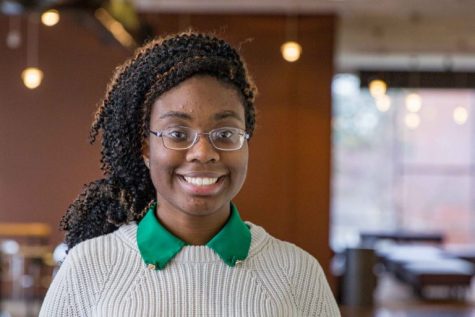UNI VA hosts PTSD conference
Mar 30, 2017
The UNI Veterans Association (VA) held their first annual PTSD conference yesterday, with a full capacity turnout, in the basement of Maucker Union. Although the conference was held and organized by the UNI VA, they covered issues of mental health beyond those related to military experience.
UNI VA President Chris Kennedy said that the event was fully booked by March 10. Kennedy said there were around 175 people in total involved in the event with around 129 of those people being attendees, and the rest volunteers and speakers.
According to Kennedy this event was inspired by the recent push from the Northern Iowa Student Government (NISG) to bring mental health issues on campus to the forefront.
“We took an event that we had last year and found that’s a we could incorporate it into NISG’s mental health push,” said Kennedy. “So we benefit both ourselves and NISG.”
The day’s events started with an introduction by UNI’s Provost Jim Wohlpart stating, “Today is about listening, about being heard and ensuring success.”
The keynote speaker Scott Dickinson spoke to the packed University room early around 9:10 a.m. to a group of students, faculty, staff and community members. His presentation was titled, “What is PTSD?”
Dickinson went through some history over the term “Post Traumatic Stress Disorder” and the ways it gets medically diagnosed. Some exposures that lead to PTSD according to Dickinson includes: death, threatened death, serious injury or sexual violence, and a person can be exposed either directly, through witnessing or learning about an event, or experiencing any of these forms of exposure repeatedly. An example of the latter, was a police officer constantly dealing with reports of violent crimes developing PTSD.
In an interview with the NI, Dickinson explained a main takeaway from his presentation.
“Basically, PTSD has been with us since human beings have walked the earth,” said Dickinson. “It’s a real diagnosis, so because it’s a real diagnosis people need to be empowered to seek the accommodations they need to be successful in life.”
Dickinson also explained symptoms of PTSD and that the goal of the event was not for people to go out and diagnosis themselves and others, but to become aware that PTSD is a “normal response to an abnormal event.”
After the keynote speech, the conference split up into breakout sessions. There was a PTSD Discussion Group in Oak room that explored triggers and how to to help students struggling with PTSD. There was also a panel on how to access support with PTSD and other disabilities in the areas of higher education, employment and other areas according to the conference agenda.
“Music Therapy in the Treatment of PTSD & Art Can Help,” “Veterans & PTSD,” “Sexual Assault and PTSD,” “Some Heroes Wear Dog Tags” and a student panel concluded the conference.
During the Sexual Assault and PTSD panel Joan Thompson shared a poem called “Those Pants” which told the story of a woman recounting how her sexual assault affected the way she saw her clothes. Thompson used it as an example of how an item as simple as pants can become a trigger after a traumatic event.
Presenters Matthew Miller and Eric Eastman both led the session on the use of service dogs.
Miller, a current UNI graduate student and the incoming military and veterans education sports specialist at the University of Iowa (UI) discussed his experience at the event.
“We were more than happy to come in and talk about service dogs and how they’re actually helping veterans with Post Traumatic Stress.”
Both Miller and Eastman had their own personal service dogs with them at the event.
“Trump is mine. I’ve had him for about three years, so he’s been placed with me since May 19, 2014,” Eastman said. “They help us with our PTSD: crowds, being around people, going to school. I mean, it’s just the anxiety and depression […] — they help ground us.”
Kennedy said this event was a success and he hopes to see it grow in the years to come.


